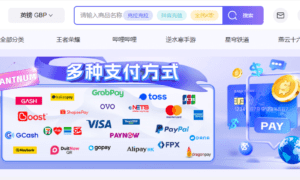Introduction: Breaking Barriers in Global Commerce
Expanding into global markets opens doors to new customers, better suppliers, and wider growth opportunities. Yet, for many small businesses, managing International Payments has long been a frustrating challenge. Traditional banking systems—known for their slow processing times, high fees, and outdated infrastructure—often act as roadblocks to efficient cross-border transactions. These obstacles can cause operational delays and cash flow disruptions, limiting business potential.
Thankfully, a new wave of financial technology (fintech) has revolutionized how small businesses handle global payments—making the process faster, cheaper, and easier than ever before.
Revolutionizing the Way Small Businesses Pay Internationally
The rise of digital platforms and fintech innovation has completely changed how International Payments are made. Today, even small enterprises can send and receive cross-border payments within minutes—without maintaining overseas accounts or paying heavy transaction fees. This digital evolution is empowering entrepreneurs to participate in the global economy seamlessly.
Smart Solutions for Seamless Global Transactions
Modern payment platforms now offer solutions that combine speed, transparency, and affordability. Transactions that once took several days can now be completed instantly. Businesses can view real-time exchange rates and understand the exact fees involved—helping them plan their finances more strategically.
The Key Benefits of Modern Payment Systems
-
Speed: Transfers that used to take days now clear in minutes.
-
Transparency: No hidden charges—just clear and competitive rates.
-
Convenience: Make payments worldwide from a single account.
-
Cost-Efficiency: Avoid unnecessary expenses tied to pre-funded foreign accounts.
With these advancements, small businesses can manage their cash flow more effectively and maintain better financial control.
Why Traditional Payment Systems Fall Short
Old-school banking methods often burden small business owners. The requirement to pre-fund foreign accounts locks up working capital that could be better spent elsewhere. Transfers can take multiple business days, leading to tension with overseas suppliers or contractors waiting for payments.
High transaction fees and poor exchange rates further erode profits—leaving small businesses with less to reinvest in growth. The inefficiency of these outdated systems makes them impractical in today’s fast-moving digital economy.
Practical Tips for Effortless Global Transactions
1. Choose a Trusted Payment Platform
Select a service that supports instant transfers, multiple currencies, and strong security protocols. Look for platforms that specialize in International Payments designed for small businesses.
2. Use Multi-Currency Accounts
Send and receive funds in the recipient’s local currency at real-time exchange rates to minimize conversion costs and avoid hidden markups.
3. Maintain Cash Flow Flexibility
Opt for systems that don’t require pre-funded accounts. This allows you to send payments directly from one central account while keeping your capital free for other needs.
4. Track Transactions in Real-Time
Modern platforms allow full visibility for every transaction—helping you verify, confirm, and audit payments effortlessly.
5. Integrate Payment Tools with Business Software
Sync your payment system with invoicing, payroll, and accounting tools to save time, reduce manual input, and improve accuracy.
Security: The Foundation of Trust in Global Payments
When handling International Payments, security is non-negotiable. Fraud or compliance issues can seriously harm small businesses. Modern fintech platforms employ encryption, fraud detection systems, and comply with strict global financial regulations. Every transaction is verified and traceable, ensuring complete peace of mind for business owners.
How Faster Payments Fuel Business Growth
Speed matters. Paying overseas suppliers, freelancers, and remote employees on time strengthens partnerships and ensures smooth operations. With lower transaction costs and better exchange rates, businesses can save significant amounts—funds that can be redirected toward marketing, inventory, or expansion.
In short, efficient International Payments mean stronger global relationships and more opportunities for sustainable growth.
Enabling Small Businesses to Compete Globally
Global trade is no longer the privilege of large corporations. The digital era has democratized access, allowing even small enterprises to compete on an international scale. With smarter, faster, and more secure International Payments systems, businesses can confidently expand beyond borders—without worrying about financial barriers.
Conclusion: A Borderless Future for Small Businesses
The world of global commerce is evolving rapidly—and small businesses are at the forefront of this transformation. By adopting modern payment technologies, entrepreneurs can bypass the limitations of traditional banks, save money, and operate with unprecedented efficiency.
The message is clear: the future of International Payments is fast, flexible, and built for growth. It’s time for small businesses to embrace this digital revolution and unlock their full global potential.
FAQs
1. What are International Payments?
They are cross-border transactions that allow businesses to send or receive money in different currencies securely and efficiently.
2. Why should small businesses upgrade their payment systems?
Modern systems offer faster transfers, lower fees, and real-time tracking—ideal for improving cash flow and competitiveness.
3. Are International Payments safe?
Yes. Fintech platforms use encryption, fraud prevention tools, and regulatory compliance to protect every transaction.
4. How can real-time exchange rates help small businesses?
They ensure transparency and allow businesses to get the best possible conversion rates without hidden costs.
5. Can small businesses operate globally without pre-funded accounts?
Absolutely. New payment platforms enable direct transfers from a single account, eliminating the need for overseas pre-funding.



































